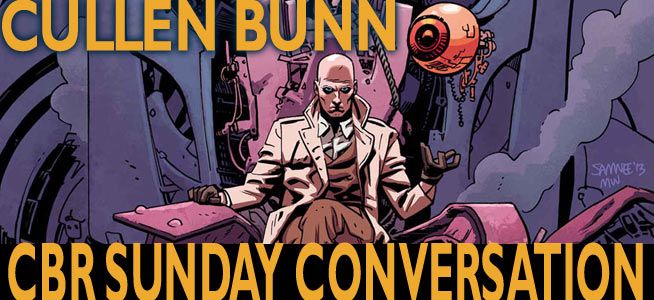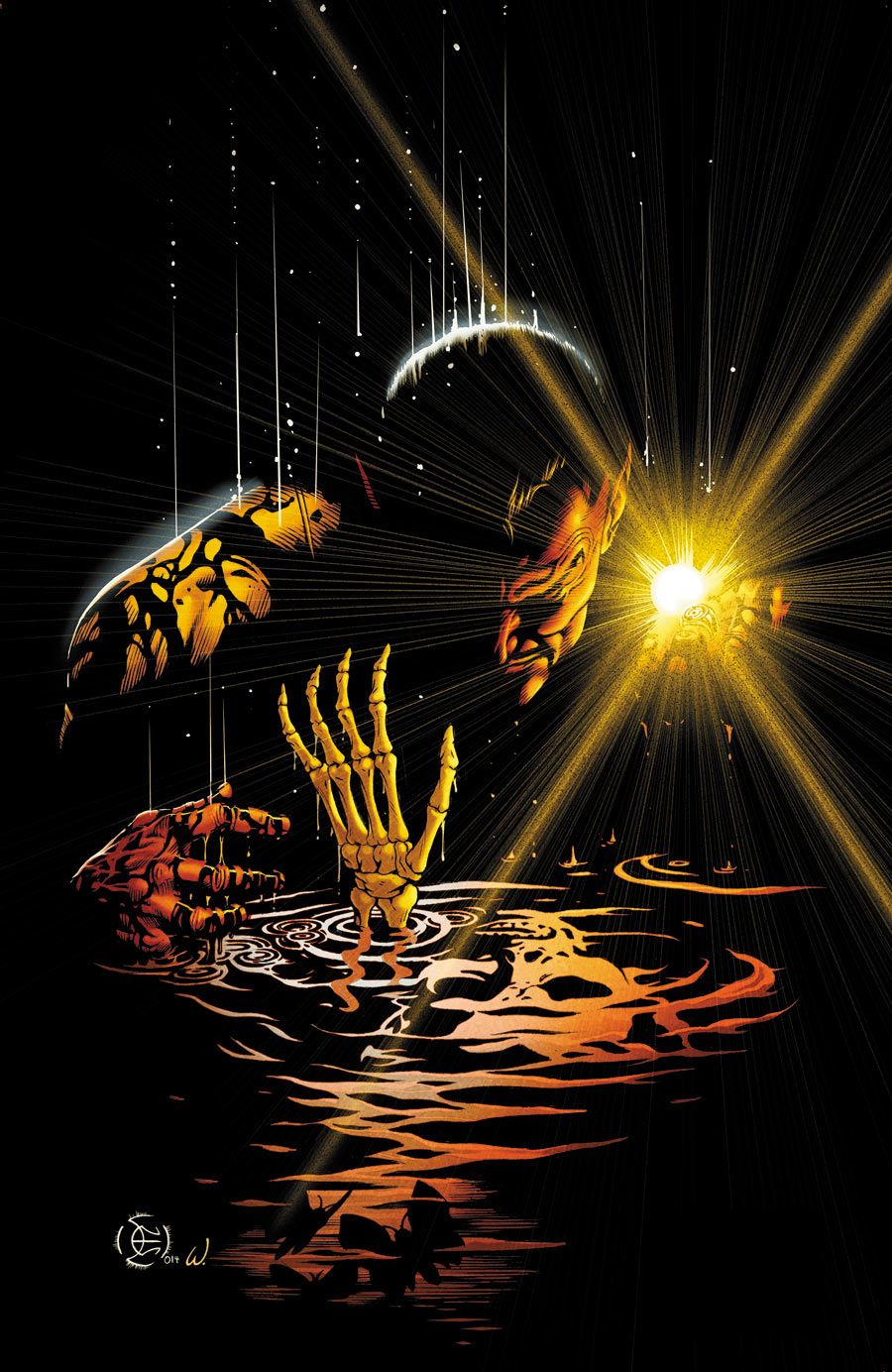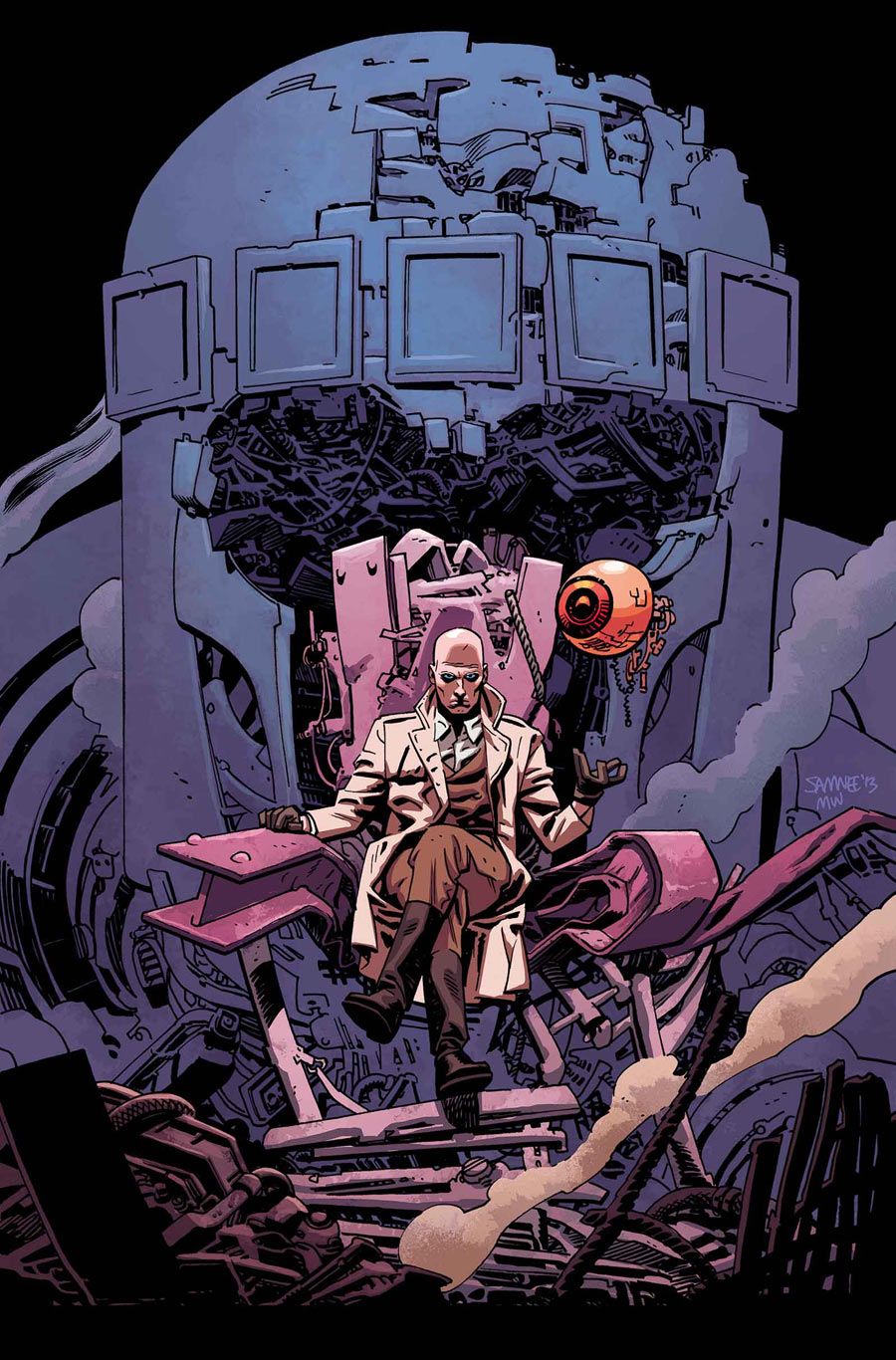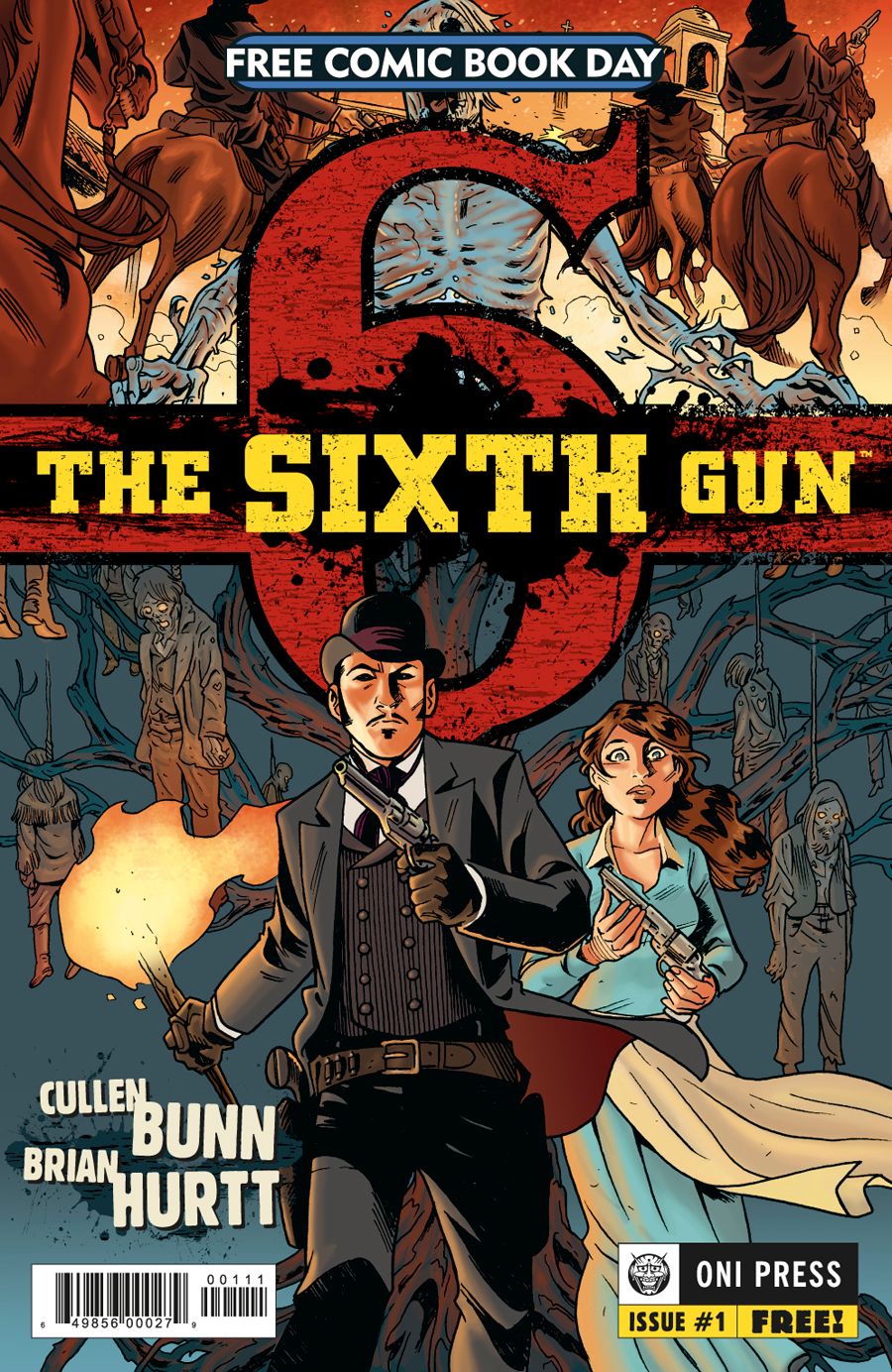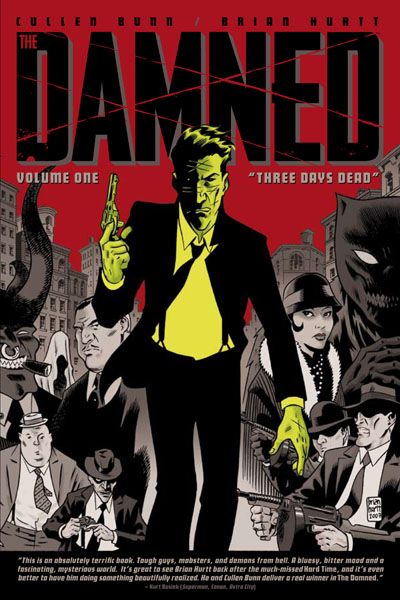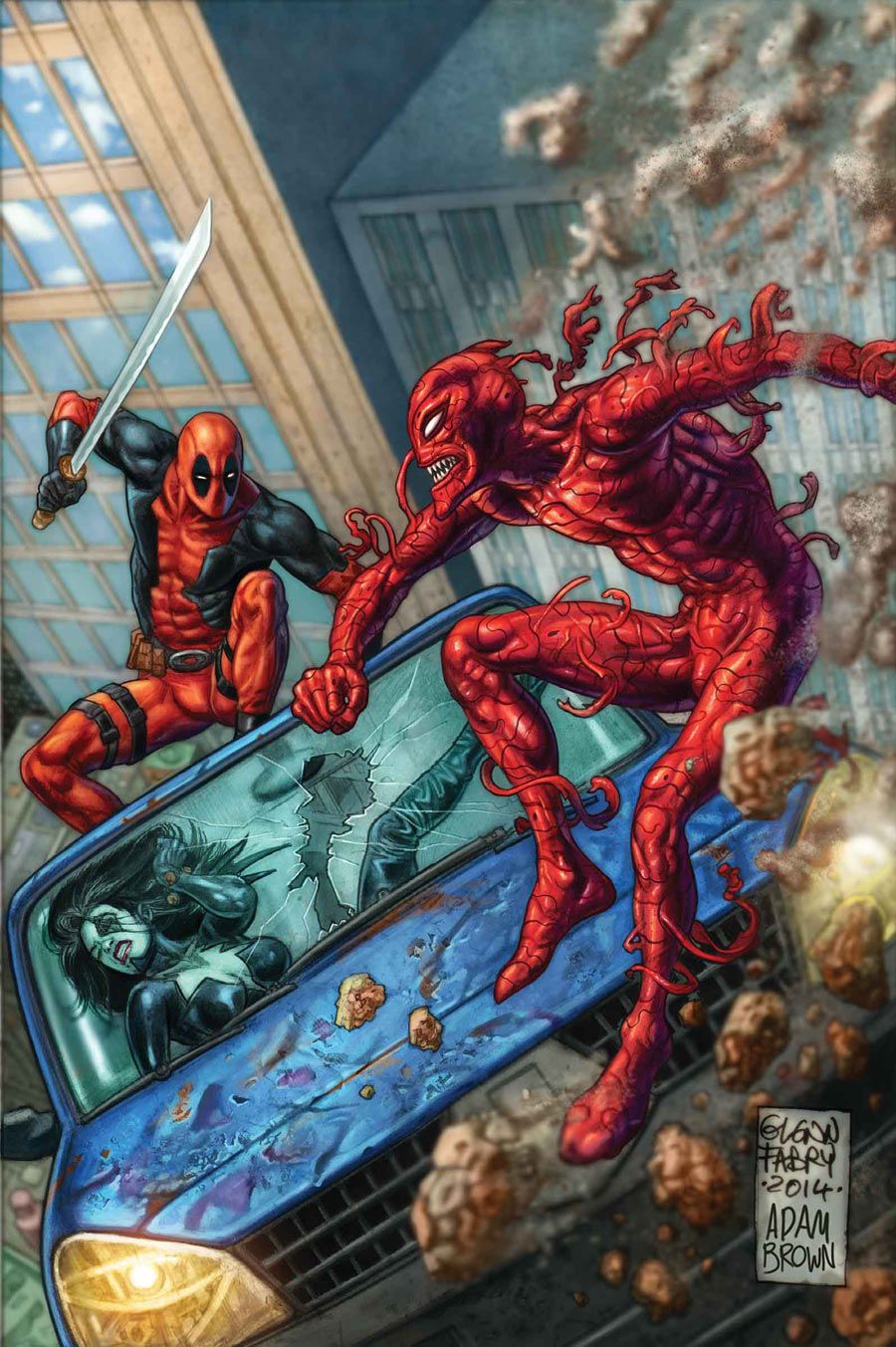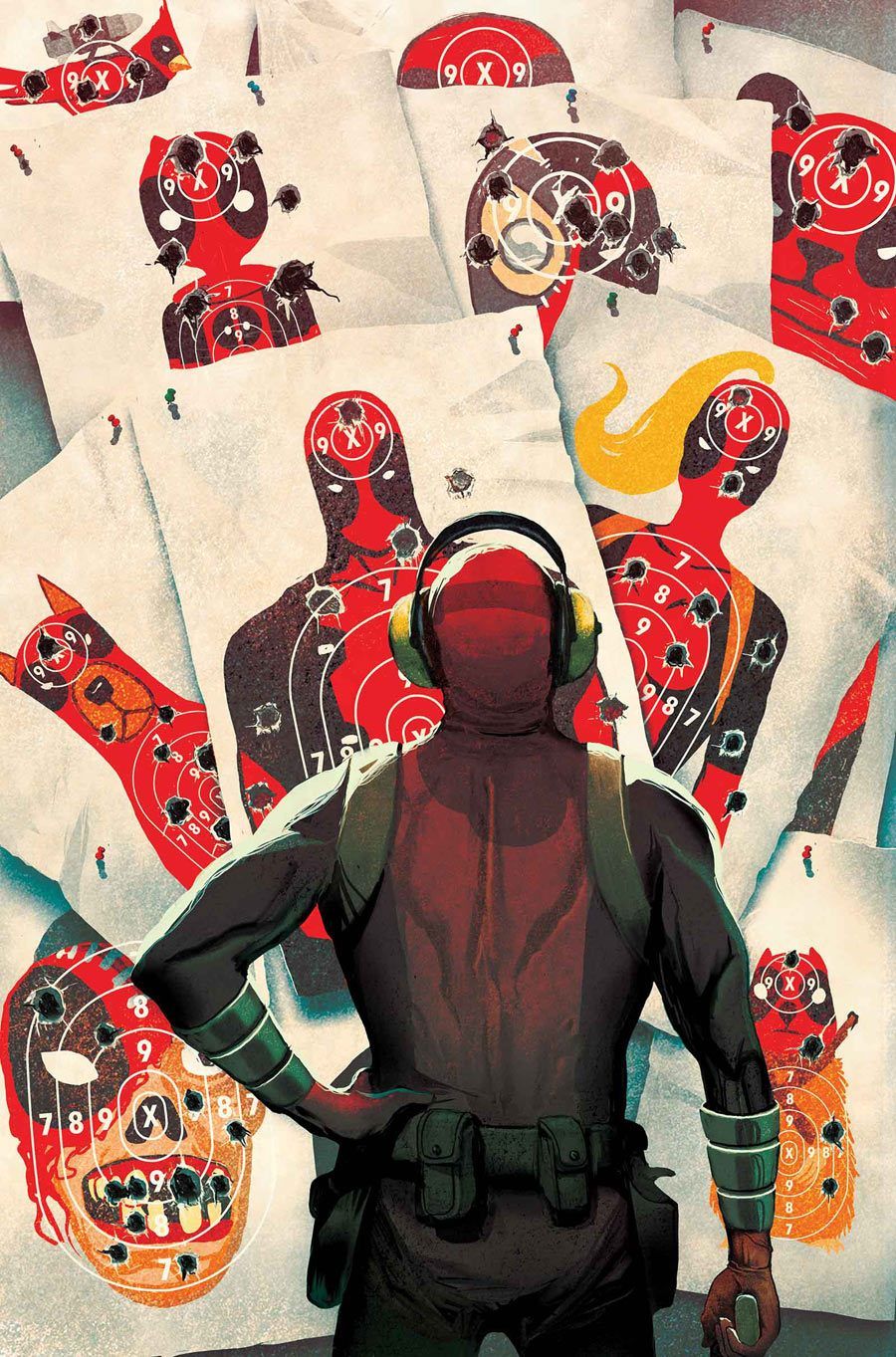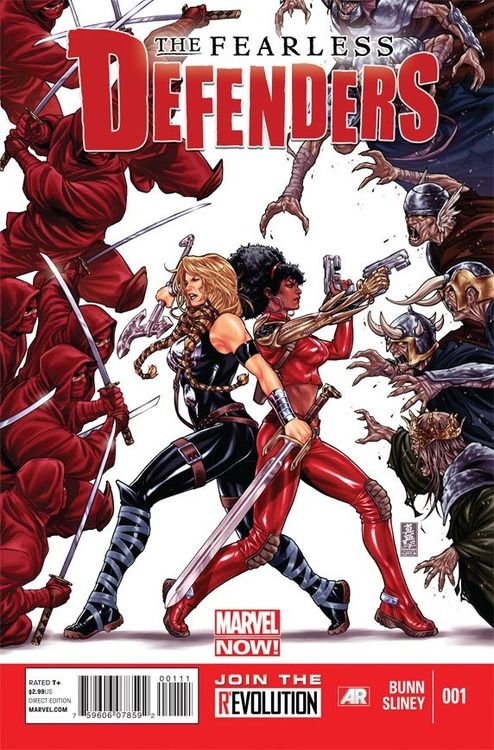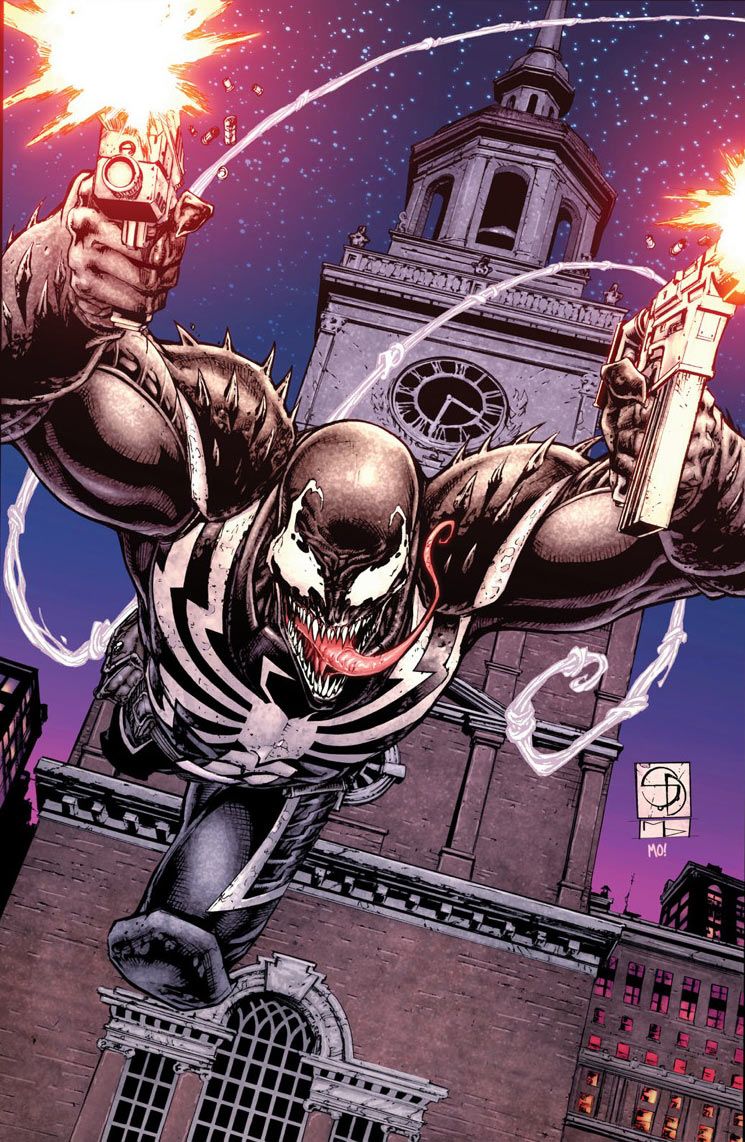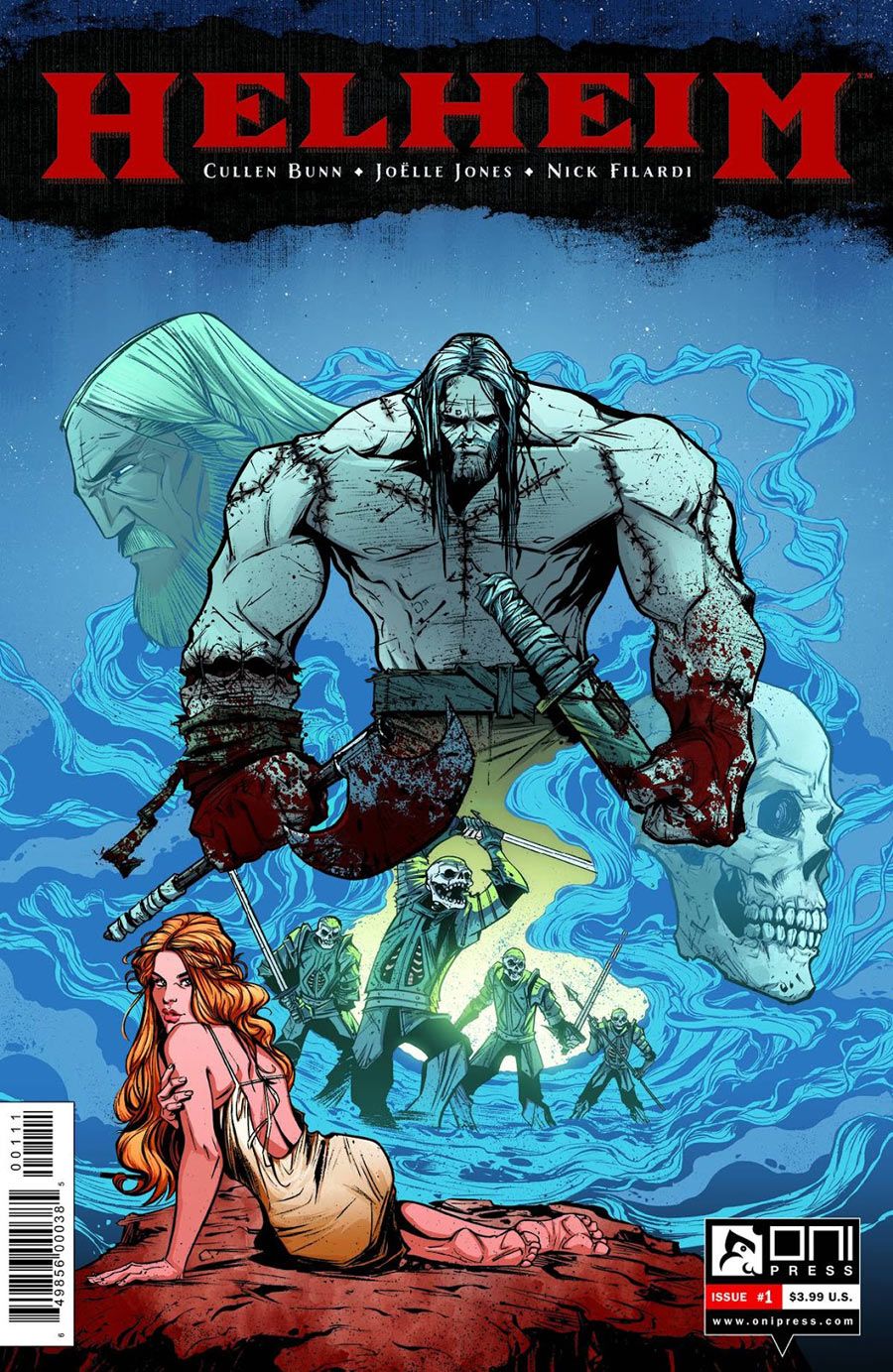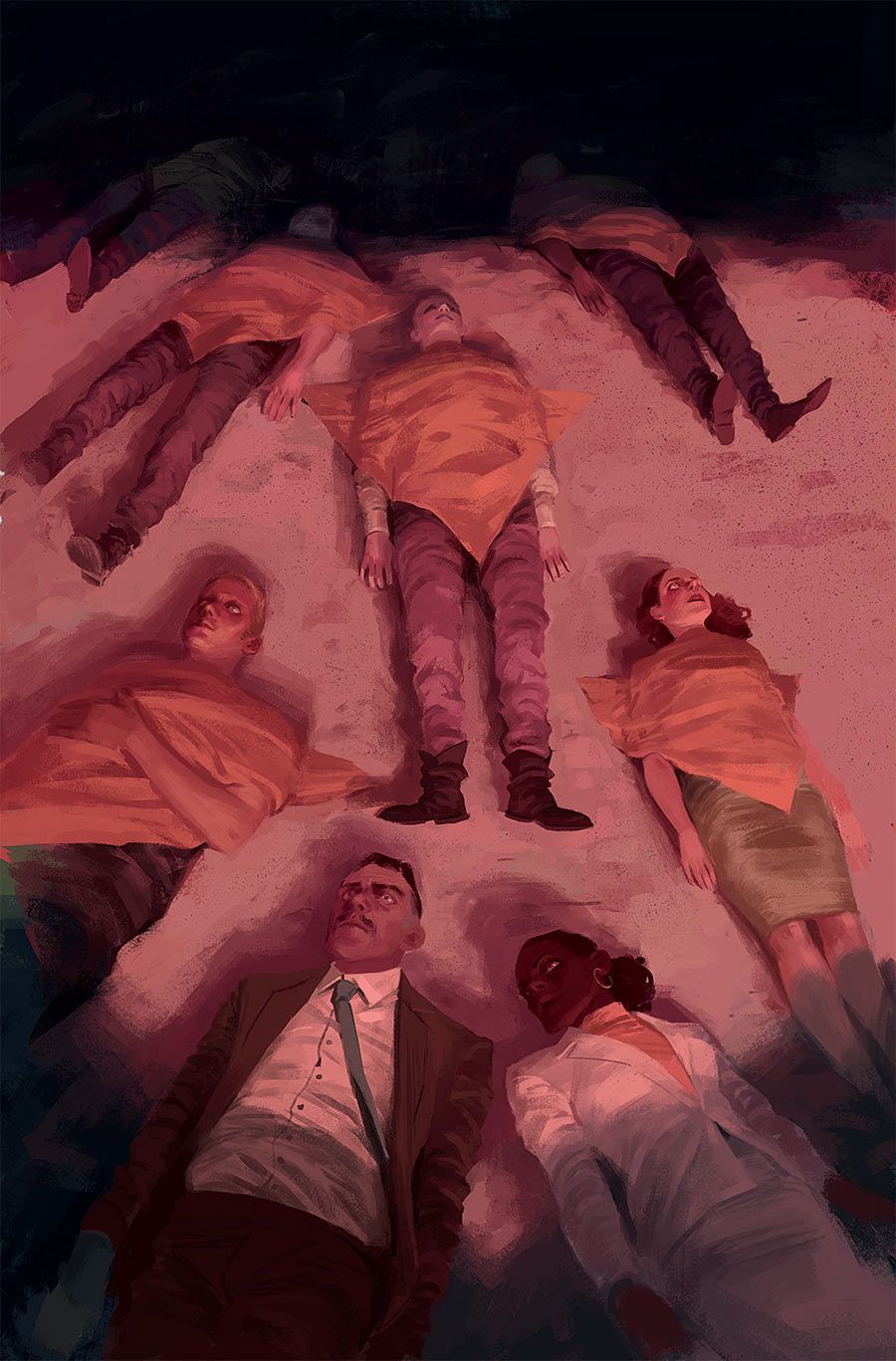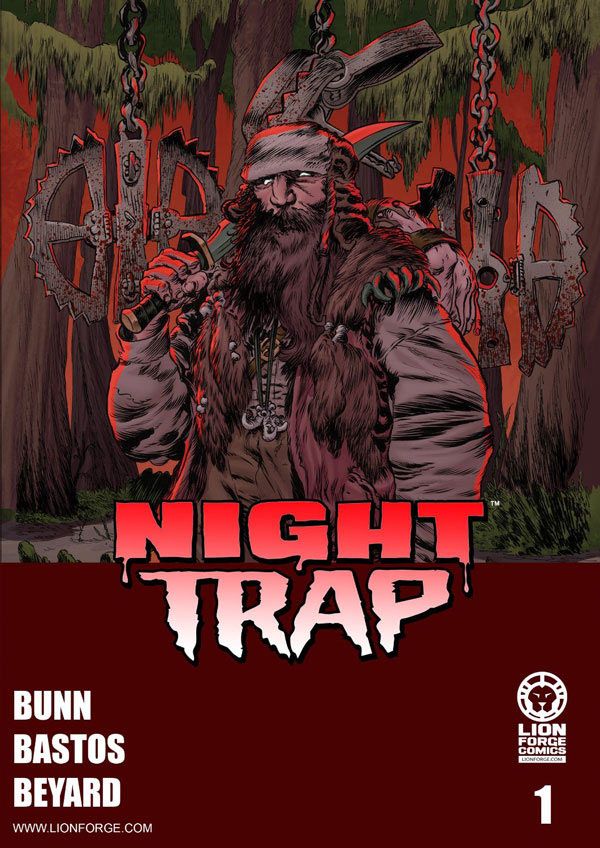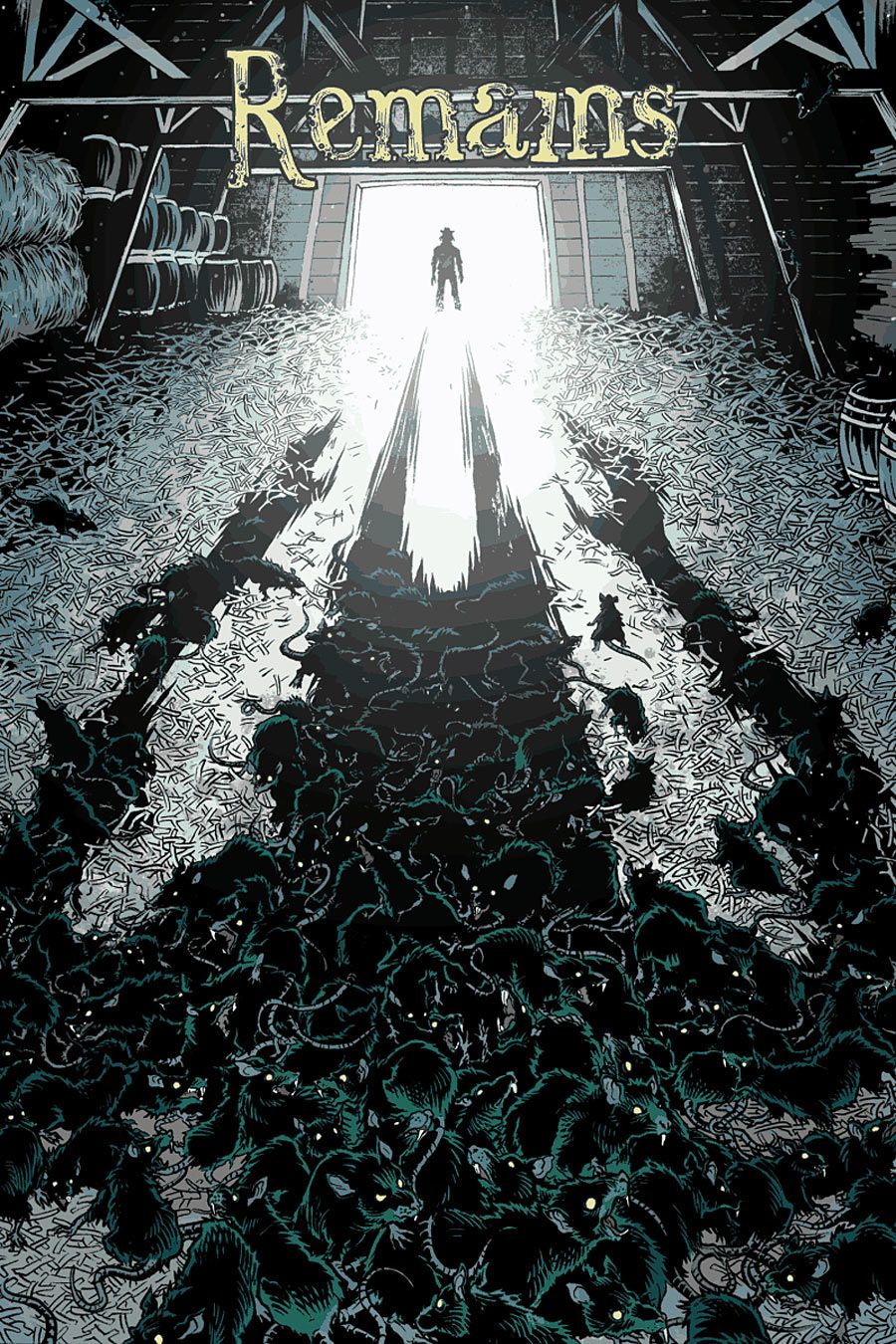Welcome to the CBR SUNDAY CONVERSATION, a weekly feature where we speak in-depth -- and at-length -- with some of the most interesting members of the comic book community. These discussions run the gamut in terms of topics, from current projects to classic stories, talking trends, tastes and wherever else the conversations lead.
The always affable Cullen Bunn is drawn to tales of the wicked. Instilled with a deep love for ghost stories at a young age, the writer went on to pen numerous horror stories before realizing another lifelong ambition in the comics industry. Bunn explores the occult in "The Sixth Gun" and "The Remains." With "Magneto" and the forthcoming "Sinestro," he endeavors to examine more ambiguous evils.
This week, CBR News asks Bunn about the villains in his own writing, as well as favorites from '70s space opera to Japanese kaiju cinema and modern anti-heroes like Walter White from "Breaking Bad."
CBR News: Given that you're writing concurrent Magneto and Sinestro titles, I thought it might be a good occasion to talk about that gray space in villainy. Neither of them are the Apocalypse or Darkseid of their respective universe.
Cullen Bunn: Right.
We know about heroes and villains and anti-heroes. Is there such a thing as an anti-villain? I feel like these two might qualify.
Well, I think they could be seen that way. What's interesting about both of those characters is that the readers are going to make those decisions themselves. I think some readers will pick up "Magneto" and there'll be no doubt in their mind they're reading the story of a villain. Another reader can pick up that same issue and really sympathize with what Magneto's doing and will see him as the hero. I think the same can be said for what I'm doing in "Sinestro." The challenge in writing these two books is to ensure that each book has its own tone. I don't ever want anyone to make the mistake that these characters are too similar. These are two different stories for two very different characters. Magneto is trying to do the right thing. He's trying to protect his people. He knows deep down that to do that he must engage in actions that aren't just construed as evil, but are evil. He has to do evil for the greater good. He knows he's walking that path. The biggest difference between him and Sinestro is that Sinestro does recognize his actions as wrong. In his mind, he's doing the right things for the right reasons, even if no one else can see the righteousness in his acts. There is tragedy in both stories, but that's the key to the divide between those characters.
Bunn & Eaglesham Make Light from Fear with "Sinestro"
They also wouldn't like each other in the unlikely event they'd ever meet. One is often portrayed as a Holocaust survivor and eventual hunter of Nazis while the other is a fuchsia space fascist.
It would be kind of awesome, by the way, to do a crossover with the two of them. I think at first they may sense a kind of kinship, but it would wear thin very quickly. Maybe that's the way it is with villains. When superheroes team up, the cliche is always that they clash first and ultimately become buddies. Maybe with villains they become buddies first before trying to tear each other's throats out.
You said you want the readers to decide whether or not they sympathize with either of these protagonist villains, but is it a necessity for you to empathize to remain engaged as a writer?
I think in order for them to be good characters, I need to find the piece of the puzzle that makes them sympathetic, that helps me understand why they're doing what they're doing. Whether or not I agree with it. It helps to be sympathetic to their cause, if not they're methods.
X-POSITION: Bunn on "Magneto" & "Night of the Living Deadpool"
Who are some of your favorite villains?
In comics, they quickly jump to mind. Magneto's always been a favorite of mine. [Laughs] Baron Karza from "Micronauts," I always liked. Although he is completely, completely not sympathetic. He was the black-suited big Big Bad who only wanted to destroy the universe. But for whatever reason, I liked him. Growing up, I also gravitated to the villain in "Dreadstar," this guy High Lord Papal. On the surface, he seemed like this world dominating villain. Then they did these origin stories that showed who he was growing up and he became this real person. I felt sorry for him from that point forward.
And outside of comics?
Well, I mean, c'mon. Growing up when I grew up, Darth Vader, obviously. He's the picture of the sympathetic villain. Maybe not in the beginning, but toward the end.
Well, by the time he ends up on the barbecue.
Growing up, I was more interested in Darth Vader as the villain than I was with the heroes. That's the character that captured my imagination.
How much of that is visual?
I think it's a huge part of it. When you think about the first time he appears in the movie against all that stark white scenery. He pops. Even dressed all in black. And he had the cool-sounding breath-maker. Whatever that thing's called.
Now we're just making light of a man's respiratory condition and continued speech therapy.
It was a cool breathing apparatus, and he just looked and sounded menacing. I remember begging my mom to take me to the mall because Darth Vader was going to appear. I remember seeing him there and following him outside. It's the stupidest thing, but it has stuck with me these many years. He was getting ready to go out and change out of his Darth Vader helmet and have a smoke, or whatever. He stopped and he turned, and looked around the mall in a very Darth Vader way. It thrilled me to no end. "Did you see what he just did? He looked around the room the way Darth Vader would look around the room!"
When I was very young, my father took me to a science fiction convention somewhere outside Philadelphia, and David Prowse leaned on our car.
Oh, wow!
Tall drink of water, David Prowse.
This guy at our mall wasn't the real Darth Vader, but he was probably half the size.
But he was one of his helpers, like with Santa Claus, probably.
[Laughs] One of Darth Vader's helpers, exactly.
He could relay messages to the real Darth Vader -- or Santa Claus -- through the Force. So sympathy is important in a villain for you?
It's weird. I'm drawn to villains I can sympathize with, like Vader. But I'm also drawn to the villains that are so frightening in their single-mindedness. I think of Chigurh in "No Country for Old Men." That guy terrified me. He's awesome, but not sympathetic in any way shape or form.
Plus you've got that wonderfully off-kilter haircut in the Coens' film that adds to that unease. It's not scary in and of itself, but it somehow contributes to that element of creeping dread. I'd liken that to your Cole Jensen character in "The Remains." The possibility or suggestion of menace is such an important facet of horror.
I think there's a sense of dread in wondering what this villain is going to do next. What are they capable of? When you meet a good villain, whether its in a comic, a book, a movie, and you worry about what they might do? If you're not sure? That really builds that scare.
What's the scariest story you've ever heard, something that really stuck with you?
Cullen Bunn Wraps "Fearless Defenders," Sets a "Night Trap"
I couldn't pinpoint it, but my dad used to tell me these ghost stories. He told me these stories of things he swore happened to him. He'd never change his tune either. He'd never back up from a story he told me when I was five. He took those stories to his grave. So, I'd always wonder. Is there a kernel of truth to any of those? Those scared me more than any single novel or movie I've read.
Especially because you inherently have that sense of trust. Even when you know it's fun and games, there's something that makes you want to believe. My dad would tell me his high school ring would make you turn into a monster and you'd never be able to turn back. I'm a college graduate and I'll likely never try that ring on. Just in case.
My dad was a big fish storyteller. He told stories all the time. The one I remember the most -- the one he told constantly -- involved his old motorcycle. He'd been out riding his motorcycle late one night, out in his rolled up jeans and black leather jacket, slicked-back hair, riding along some country road. The engine cut out on him, out in front of an old church. He could hear music playing in the church. Organ music. He went up to see if he could get some help. Doors are all locked. Place had obviously been closed for years. But he looked through the windows and could see a woman walking back and forth through the church. He said it scared him so bad he ran all the way home, left his motorcycle there on the road. He went back for it later.
When it was light out.
Just telling that story -- and I'm not telling it as well as he did -- just gives me chills.
Was he typically the star of all those stories?
Almost always, was he the star of those stories. He is either the star or the second lead.
Have you ever borrowed from any of those in your own writing?
Yes. Not really in comics, too much. Maybe some of the legends I worked into "The Sixth Gun." It's mostly in my short fiction, sometimes lifted wholesale, not changing much at all.
Bunn & Hurtt Slap (Faux) Leather with "Sixth Gun" Collections
Do you remember the first time your wrote a story just for yourself, not something for school or anything like that?
Sure. I remember writing when I was very young. I wrote and drew something I called "Attack of the Monsters." Every page was a different scene out of a giant monster attack. I had Godzilla, King Kong and Mothra, all from movies I'd seen. First page saw Godzilla bursting out of an iceberg. I remember that in the end, King Kong fell off a building, just like in the movie. I can't remember what happened to Mothra, but they dropped a sword on Godzilla's head. They flew a helicopter over with a giant sword.
[Laughs] Did they have to build this giant sword, or was it some kind of space artifact?
That all happened off-panel. I was always writing and drawing comics throughout childhood. I tried writing a novel in the seventh grade. It was fantasy, with dwarves and elves and references to whatever D&D game we were playing that week.
That is an alarmingly familiar trajectory, I just have to say.
I still have the first six chapters of that novel. It's really bad. It's really, really something else.
You have to admire the ambition though, to attempt something like that in the seventh grade.
Yeah. It was all written on onion skin. Typed on onion skin.
I imagine you're eagerly anticipating the upcoming "Godzilla" movie.
I am. I've actually tried to avoid watching anything beyond the teaser because I know I'm going to see it anyway.
Well, now we need to run down you favorite Godzilla opponents.
There's a few. I think MechaGodzilla probably goes down as my favorite, in all of his different incarnations. I also have quite a fondness for Gigan, because my dad took me to see a Godzilla double feature at the movie theater one time, and that was one of the features. So I have a lot of nostalgic connection to that one.
Maniac Hunts Psycho in Bunn's "Deadpool Vs. Carnage"
Do you prefer the campier Showa era or the darker -- yet still totally campy -- Heisei and Millenium eras of the franchise?
I like it all, for different reasons. I like the campy stuff because that was what was available to me as a kid. Then it disappeared for me for a while. Then there's that second era, which I guess started with "Godzilla: 1985" [also known as "Return of Godzilla"] with Biollante and the new Mothra movie. Everything between 1985 and "Godzilla vs. Destoroyah." That's my favorite era. I went back and watched them not so long ago, and some of them were not as good as I'd remembered, but I still enjoy that period. They made Godzilla bad again, and they were almost like superhero movies. Very big and dramatic.
For me, the campier the better. I also enjoy Godzilla as a hero rather than a villainous force of nature, though I love the metaphor or the original "Gojira." Do you remember the one where it's all in a little kid's head?
Oh yeah. "Godzilla's Revenge."
Yes. He's being bullied and the yakuza are after him. So he takes comfort in daydreaming about Monster Island and Godzilla's son Minilla, who looks like TV's Webster.
That's -- you probably like the most reviled of all Godzilla movies.
Hey, I watched it at the right time, and I still adore just how wacky it is.
It's my son's favorite.
Has he seen any "Gamera?"
He's seen "Gamera the Brave," which is the most recent one. He liked that one as well. And those "Gamera" movies that came out around the same time as those later Godzilla movies remain some of my favorite giant monsters.
Have you ever related so much with a monster or villain that you've worried about the implications?
Even when I like a villain, I want them to get their comeuppance. Walter White, for instance, on "Breaking Bad." An amazing villain.
You've taken my bait.
I've had heated arguments with people as to whether you're supposed to like or hate Walter White. There is a moment where he reaches this tipping point, the moment he can not come back from. That's the point where I don't think we're not supposed to like him anymore. [Laughs] But I couldn't help it. I still liked him. But even though I liked the character, I still wanted him to get caught. I wanted to see him get taken down. I can't think of a better character arc with such a satisfying resolution. Those last final episodes were astounding in how they wrapped things up.
I'd argue that there are two tipping points for the character, and that if one didn't do it for you, the other is the absolute convincer.
Well, I think I know the first one. It's when he sits back and lets Jesse's girlfriend Jane choke.
Through his inaction, yes.
After that it's harder to sympathize with him. What's the second one.
The Lily of the Valley.
Oh, right! Well maybe that's where I feel a little bad because I thought, "Eh, he had to do that."
These are the two major points where, objectively, you know he's a monster. And yet, subjectively, a lot of us continue to root for him, actively or subconsciously. When Jesse was preparing to make his taped confession, I find myself saying, "No! Do the right thing, Jesse!" And I had to step back and go, wait, what do I think the right thing is?
With Walter, the thing I related to was his powerlessness. He had no power up until he started down this path. It just intoxicated him. He was an interesting character, because pride, his own pride, destroyed everyone and everything around him. I have a lot of friends who won't watch it or don't get why I even like it, which -- I think they're just being idiots.
[Laughs]
That's fine. I can't argue with them too much.
We know the truth.
That's right.
Stay tuned to CBR News for more on Cullen Bunn's many projects and follow him on Twitter at @cullenbunn.

